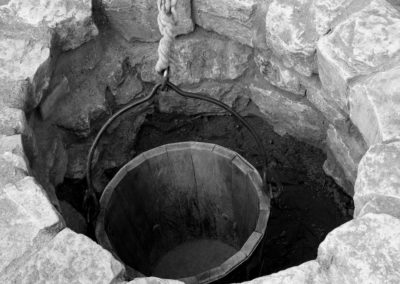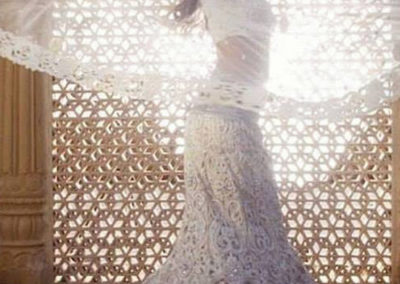The Papers
Only God could have known the what awaited me on one hot, summer day in 1976. My life would be forever changed and I would be driven by what I uncovered in the dresser drawer.
Much of my childhood summers were spent as long, empty days at home, waiting anxiously for my mom to get home from work at 4:15p. A time of day that still, to this day, prompts me to look at the clock. I also waited in great anticipation for my birthday in September, marking the end of the summer months, and the first day of the school year only days later. I would be ten that year.
I was raised an only child (I had a brother, but he was 27 years older than me, and I hardly knew him as a brother. I related to him and his children as more like cousins). So, with my mother at work, and my father at the bar from sunup to late afternoon, I was on my own all day. Time was not my friend. The hours were lonely, tedious things, but at 4:15 pm, mom would come home. Though she was always tired from work, her presence would nevertheless dispel my loneliness. Dad would come home at some point in the afternoon, and I always hoped it would be later than it ever was. When dad came home the peace that we experienced in his absence would very quickly vanish, giving way to evenings of alcoholic chaos.
In the rear of our house my dad had added on a den at some point before I was old enough to remember. It was a long room, long enough for a nine year old to run a very short foot race. On the end closest to the dining room and kitchen was a large brick fireplace. Here, as a baby and toddler, Mother would warm me after my bath, rubbing lotion all over me and then dressing me in pajamas warmed by the fire. The opposite end of the den was a bric-a-brac of furniture including a queen size bed, a large, six drawer, ornately carved bureau in which mother kept treasured silks and laces, an orange, vinyl sofa, a orange recliner, a coffee table, and a console television. The room was arranged as neatly as possible. Mother and I spent each evening curled like spoons on the orange sofa, watching the evenings’ television programs until bedtime. Dad usually sat in his recliner, nearly unconciously drunk, but becoming volatile unpredictably.
It was in this room, during a long summer day alone, amongst the familiar things of my nine year old world that I would innocently open the bottom drawer of mother’s bureau and, like Alice in Wonderland, fall through a hole in reality; nothing recognizable, the identity of everyone I knew in question, and my sense of myself disolved into this air. The room was darker than the rest of the house, decorated in period style with orange-brown carpeting, wood paneled walls, and deep orange colored curtains that were dept drawn most of the time. Alone, I had a strange fear of this room, but daylight made it easier to approach the bureau.
Beginning with the top drawer, I searched each one with focus. Finally, pulling open the sixth and last drawer, the familiar fragrance of Mother’s scented drawer tablets wafted up, and I knew my fingers would soon land on the object I was hunting. I pulled everything out like the winds of a hurricane, until, at last, I found my treasure. I buried my face the silky folds of my mother’s pretty Japanese scarf that she let me use for my dolls. I breathed in the scent of her, missing her so much while she was away at work on those summer days. Putting the scarf aside to close the drawer, my eyes landed on a large envelope hiding at the very bottom of the drawer. In my memory, it is as though time stopped…. and I heard whispering as surely as I had smelled the scented tablets .
Picking it up, I slowly opened the manilla envelope and removed several very official-looking papers. The first one was a lot of information about my brother, Albert Bostwick. Where he was born, when, and to whom. The next paper had my name on it. Kimberly Bostwick: Child of John and Opal Bostwick, born on September sixth, nineteen sixty-six. It was different than Albert’s. There was no footprint on the side and nothing about the hospital. The next paper I looked at was dumbfounding. It was typewritten letter to Mother and Daddy from someone named Marie Murphy. It said that Marie Christine Murphy was the infant daughter of Marie Murphy. It said that John and Opal Bostwick could take Marie Christine to the doctor if they needed to because she was going to live with them. It was dated the twenty-third of September, nineteen sixty-six. That’s near my birthday, I thought. Whoosh! The wheels in my head started to spin as I tried to comprehend the words I read. Who is this mysterious girl? Do I have a sister somewhere? Why isn’t she here with us? And then my eyes lit on the girl’s birthday: September 6, 1966. Oh. My. God. My heart began pounding wildly in my ears; my hands became cold and clammy. Something wasn’t right. I continued, numb with confusion, to the next page. “In reference to the adoption of Marie Christine Murphy by John and Opal Bostwick,” it read in bold black letters. The words marched across the page like tiny soldiers firing with intent, firing to kill; stamping out my existence with their crushing invasion of black ink: Marie Christine Murphy was to have a new birth certificate and a new name. Her new name would be Kimberly Ann Bostwick. Oh, God! Oh, God!! Marie? Who? Oh, God. The length and breadth and depth of me ached from shock. My senses twisted like a pretzel as I struggled to understand. “Someone help me,” I moaned into the gaping silence of the room that seemed, at that moment, like a tunnel, miles long and from which I could not escape. Alone, in a room dark and menacing, reality unraveled like a ball of yarn falling out of my head. If only I could escape that horrible room, then I would certainly wake up and Mother would appear to quell my fears and tell me it was only a dream. I want my mommy. But…, oh, God! Who is Mommy? I began to sob. Fear gripped my body with the weight of the monsters I believed lived under my bed at night. I moved to stand, and trembling, I ran. I ran as fast as I could through that eternal den, through the house and out the front door. I ran down the street in the late morning hours, tears streaming down my face, as I headed in the direction of my friend, Becky’s, house. The screaming questions in hot pursuit banging on the weakened door to my mind. I ran, and ran, and ran.
Suddenly, as if I popped through a tiny door in reality, it was 4:15. I was sitting across from Mother at our brown Formica dining table, and my name was Kim. Strangely composed, adoption papers in hand, I prepared to ask Mother for an explanation. Leaning a little to the side I peered down the length of the den expecting to see the mess I left earlier in the day, but there was no sign that a secret had leapt out of that awful bureau and murdered me. It had been miraculously returned to order. I didn’t have time or courage, however, to stretch my memory and remember how it got that way. Mother was waiting for me to speak. “Mommy,” the sound of my own voice reaching my ears like an echo, “I found these today. Wha…wha.. what do they mean?” My little body was tight with confusion and fear as I absorbed the idea that I had no idea who this woman before me was. “Why am I calling her Mommy,” I wondered. Mother looked very tired, her face was drawn. She was a small woman, not quite five feet tall and barely 100 pounds. She dyed her hair red and went to Dottie’s Salon every Saturday to have her hair fixed beehive style. She was a very sober woman much of the time, but as I pushed the papers toward her, she came to life with interest. She reached for her black rimmed, bi-focal glasses. “What?” she said plainly, slipping her glasses onto her nose. I waited in silence as she looked over the papers. Only the clock marked the time warp I found myself in. “Wha – where did you get these?” she said sternly. She gazed at the papers, refusing to look at me. “I found them in the drawer in the den, Mommy,” I replied tentatively. For fear that I would get in trouble, I quickly reminded her of the Japanese scarf she gave me permission to use for my dolls. “Oh,” she said, shortly, still gazing at the papers in her hand. Then, “Ohhhhh, I know what these are,” relief sounding clear and loud in her voice. “I typed these up for a girl at work years ago. She was thinking about adopting a baby, so I typed up these papers for her.” She said this lightly and the strain in her brow relaxed. “Really, Mommy?” I said, afraid yet to be comforted. “Yes, really, Kim. You are mine,” she said with religious fervor, finally looking at me. “Oh, gosh, Mommy, I was so scared!” I gushed, in sweet relief. “I thought you kidnapped me! I though someone was going to come and take me away!” I said, tears welling in my eyes. “No, honey, no one is coming. You are mine! You are my little girl and don’t let anyone tell you different! Do you hear me?” she said. The unusual conviction in her voice was bringing my world back into focus. As I looked into her tired eyes, I sensed, somewhere within me, that there was more. I took comfort, however, in her fabrications. I needed to believe her her as badly as she needed me to. For the time being, she glued the shattered pieces of my reality back together and she was Mommy again.




